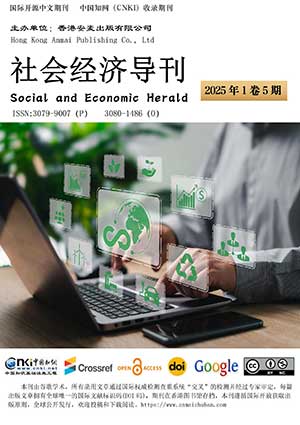 多年行业经验
多年行业经验
 专业优秀团队
专业优秀团队
 一站式出版服务
一站式出版服务 多年行业经验
多年行业经验
 专业优秀团队
专业优秀团队
 一站式出版服务
一站式出版服务 多年行业经验
多年行业经验
 专业优秀团队
专业优秀团队
 一站式出版服务
一站式出版服务 多年行业经验
多年行业经验
 专业优秀团队
专业优秀团队
 一站式出版服务
一站式出版服务 多年行业经验
多年行业经验
 专业优秀团队
专业优秀团队
 一站式出版服务
一站式出版服务 您的位置:首页>期刊>社会经济导刊
您的位置:首页>期刊>社会经济导刊 {/pboot:if}
{/pboot:if} 《社会经济导刊》长期以来注重质量,编排规范,选稿严格,学术水平较高,受到高校教师及科研院所研究人员的青睐。作为开源期刊,本刊所有文章均可在全球范围内免费下载,且被中国主流数据收录。
本刊致力于探讨社会经济发展的各个方面,提供深入的分析和研究。它以独特的视角和深度报道,引领读者了解全球各地的社会经济现象,探索不同国家和地区的经济发展模式、管理策略、政策法规以及社会变革。这本杂志不仅为读者提供了一个全面了解世界社会经济发展的平台,还促进了学术交流和知识传播,为推动社会经济进步和管理创新做出了贡献。
期刊范围:经济发展论坛、社会政策研究、市场分析与预测、产业观察、金融与投资、劳动与就业、城乡发展研究、区域经济合作、国际经济比较、环境与可持续发展、科技创新与经济转型、社会保障体系、教育与人力资源、健康与医疗经济、文化产业与经济、法律与经济秩序、消费者行为分析、国际贸易与全球化、贫困与不平等问题、企业战略与管理等
本刊是一本由同行评审的高要求、高水准的学术期刊出版物,编者鼓励与本刊相关的、有理论和实践贡献的来稿。
上海对外经贸大学,上海市,201620;
摘要:人工智能技术的快速发展正在深刻重塑商业生态,对传统人力资源管理的理论体系与实践范式构成根本性挑战。本文聚焦于AI时代HRM范式的转型,指出传统模式在价值创造机制、组织行为逻辑与管理哲学等方面的局限性日益凸显。新兴范式正由“管理—控制”逻辑转向“数据驱动的价值共创”与“个体赋能”导向的动态体系。围绕该转型,本文提出组织应重点构建四项核心能力:人机协同能力、数据驱动的决策力、敏捷学习与动态适应能力,以及容错型创新文化。与此同时,领导力也需实现从“指令—监督者”向“愿景导航者”“赋能型教练”“伦理治理者”与“文化建构者”的转型。总体来看,AI驱动下的HRM变革不仅是技术升级,更是组织理念、能力结构与领导模式的系统性重构,关系到企业在智能化竞争中的可持续发展。
关键词:人工智能;人力资源管理;范式转型;组织能力;领导力;人机协同
参考文献
[1]Prikshat V,Islam M,Patel P,et al.AI-Augmented HRM:Literature review and a proposed multilevel framework for future research[J].Technological forecasting and social change,2023,193:122645.
[2]Vezeteu P V,Nastac D I.Artificial intelligence integration in business: study of employee competences in relation to the organisational needs[J].Amfiteatru Economic,2024,26(67):832.
[3]李镜,何敏.人工智能技术在组织创新管理中的前沿应用与发展——2024年度人工智能与组织创新管理学术研讨会会议综述[J].软科学,2024,38(06):144- 145.
[4]Qu H,Xu J,Sun S.Philosophical Epistemological Study of Human–Machine Collaborative Technology in Intelligent Manufacturing[J].Strategic Study of Chinese Academy of Engineering,2024,26(1):225-238.
[5]Malik M,Raziq M M,Sarwar N,et al.Digital leadership,business model innovation and organizational change:role of leader in steering digital transformation[J].Benchmarking:An International Journal,2025,32(5):1632-1662.
[6]Benabed A,Bujor D,Manita Bulareanu A,et al.The Role of AI for Business and Companies’Leadership and Internationalization in Globalization:A Background with Analysis[C].Proceedings of the International Conference on Business Excellence.Sciendo,2024,18(1):268-282.